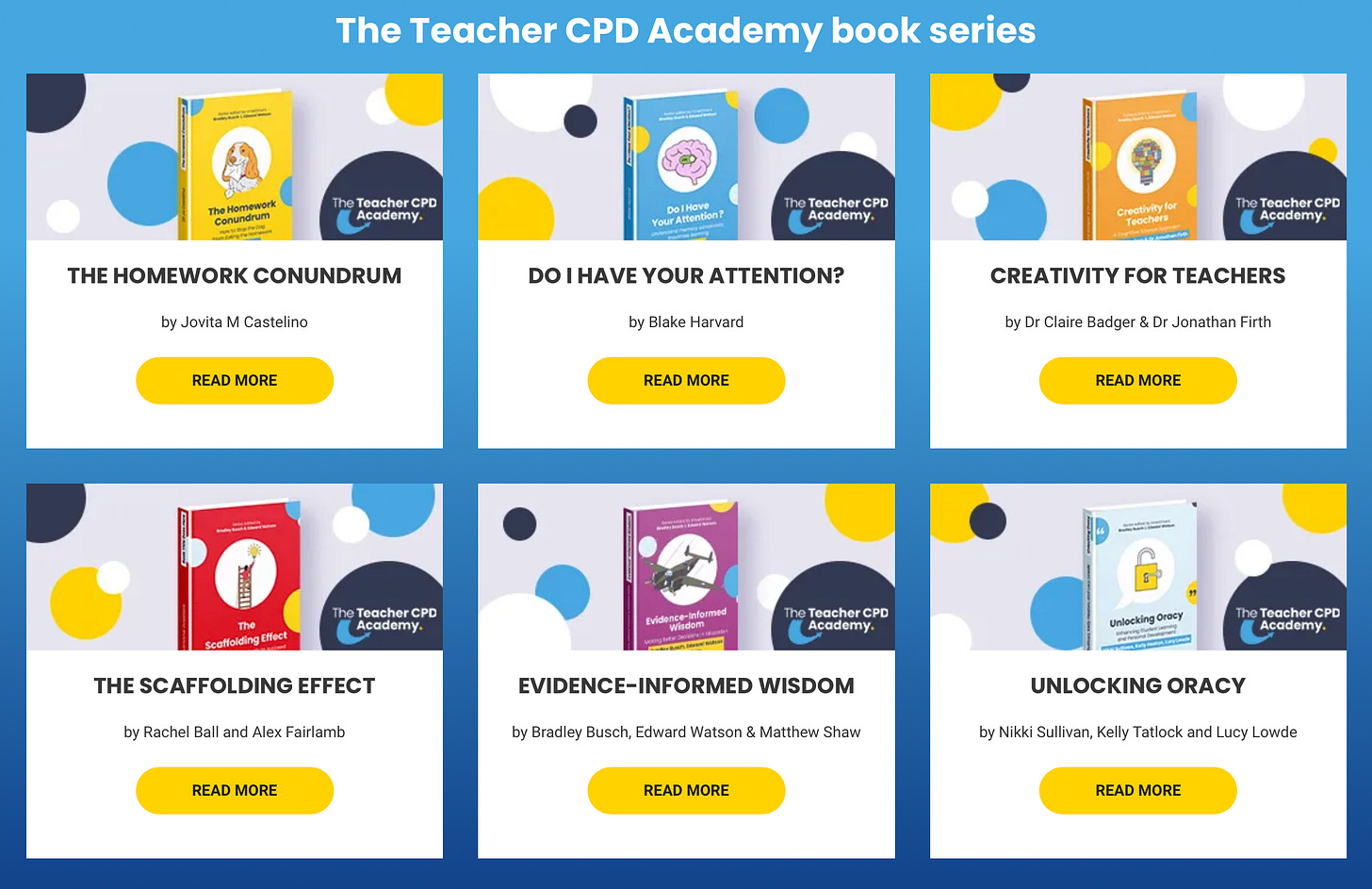No, Schools Don't Kill Creativity!
Jonathan Firth's Memory & Metacognition Updates #106
I have exciting news to share. But first, have you ever heard the idea that schools (or teachers) kill creativity?
This was the theme of a popular YouTube video by Sir Ken Robinson, and more broadly, a lot of people seem to believe that children are born creative, and that this creativity is squished out of them by schools or workplaces that force them to conform.
However, this is a myth. It’s based on misconceptions about how creativity works, and about what schools do.
Cognitive scientists understand that creative thinking depends on knowledge. Knowledge forms the building blocks that we think with, and by making links among our existing ideas (or between these and new problems), we come up with novel ideas.
But don’t we become less creative as we get older?
These points might seem strange; it’s not hard to think of young children saying and doing quirky and funny things that feel incredibly creative.
However, these examples relate more to child development than to schooling. Children who don’t go to school at all don’t continue to speak and act like three year olds. We therefore can’t lay these changes at the door of teachers, and they are, in any case, not a bad thing – they reflect each child’s growing understanding of the world and the people in it.
I also don’t think it’s true that schools are necessarily conformist or that they stamp out individuality. Some might be, of course. But you don’t need to teach like Miss Jean Brodie to encourage learners to have ideas, make new connections, and learn to apply factual knowledge in interesting and novel ways. Indeed, most educators that I know are actively encouraging their students to think deeply, to question their assumptions, and to be curious. These are all great things for creativity!
Want to know more?
As I mentioned a couple of weeks ago, I have a new book coming out on creativity for teachers; it comes out on the 24th March, and can be pre-ordered now! 🎉
It’s part of a series of books called The Teacher CPD Academy, edited by InnerDrive (you might be familiar with their great blogs and CPD work), and published by Routledge.
Other books in the series that are already released include:
‘The Homework Conundrum’ by Jovita Castelino;
‘Do I Have Your Attention’ by Blake Harvard.

Also, as you can see from the image above, there are other exciting titles on their way (find out more here). I believe that the series as a whole will be an excellent resource for all educators who are interested in applying cognitive science to their work.
My co-author Claire Badger is an inspiring science teacher and CPD leader. Claire has also done a lot of fascinating work developing student competences in a way that’s informed by cognitive science, and our collaborations working with both students and teachers led to this book.
You can read some of my own previous posts on creativity here on this newsletter (see update #28 and update #29). And if you’d like to pre-order our book, check out the links below, or ask your favourite education bookstore to stock the series.
All the best for the week ahead!
Jonathan
I hope you are enjoying Memory and Metacognition Updates. Subscribe for free to receive new posts and support my work – and consider sharing it with colleagues!! Thank you!
Please note that my slides and similar materials are shared under a CC BY-NC 4.0 license. This means you can use or adapt them with attribution for non-commercial purposes. If you wish to use my materials for other purposes, feel free to get in touch.
